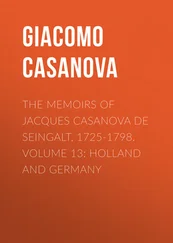Emile Dillon - England and Germany
Здесь есть возможность читать онлайн «Emile Dillon - England and Germany» — ознакомительный отрывок электронной книги совершенно бесплатно, а после прочтения отрывка купить полную версию. В некоторых случаях можно слушать аудио, скачать через торрент в формате fb2 и присутствует краткое содержание. Жанр: foreign_antique, foreign_prose, на английском языке. Описание произведения, (предисловие) а так же отзывы посетителей доступны на портале библиотеки ЛибКат.
- Название:England and Germany
- Автор:
- Жанр:
- Год:неизвестен
- ISBN:нет данных
- Рейтинг книги:3 / 5. Голосов: 1
-
Избранное:Добавить в избранное
- Отзывы:
-
Ваша оценка:
- 60
- 1
- 2
- 3
- 4
- 5
England and Germany: краткое содержание, описание и аннотация
Предлагаем к чтению аннотацию, описание, краткое содержание или предисловие (зависит от того, что написал сам автор книги «England and Germany»). Если вы не нашли необходимую информацию о книге — напишите в комментариях, мы постараемся отыскать её.
England and Germany — читать онлайн ознакомительный отрывок
Ниже представлен текст книги, разбитый по страницам. Система сохранения места последней прочитанной страницы, позволяет с удобством читать онлайн бесплатно книгу «England and Germany», без необходимости каждый раз заново искать на чём Вы остановились. Поставьте закладку, и сможете в любой момент перейти на страницу, на которой закончили чтение.
Интервал:
Закладка:
The Banca Commerciale, which was admittedly an all-powerful German institution, and has the control, direct or indirect, of most of the industries, the silk manufacture, metallurgical and mechanical works of the country and of thirty-four electrical companies in Italy: which possess a capital of 434,000,000 francs and produce energy equal to 940,000 h.p.: found itself in an unpleasant predicament as soon as the King of Italy declared war against Austria-Hungary. But Teuton resourcefulness solved the problem with ease and seeming thoroughness by inducing certain German officials on the board to resign and appointing as Italian director a gentleman known for his philo-Germanism. But the three creators of the bank were left: Herrn Joel, Toeplitz and Weil, and although it was affirmed solemnly that Joel was no longer the director but M. Fenoglio, it has been publicly proved that after the resignation of the former, the latter, before sending a consignment of gold to Berlin , 22 22 On May 21, 1915.
had to ask for and actually received the authorization of Herr Joel. 23 23 L’Idea Nazionale , November 8, 1915.
The following brief summary of the companies and enterprises in which the Banca Commerciale is interested may enable the British reader to form an idea of its decisive influence on the economic and political life of the Italian nation: they include eighteen of the largest companies of textile industries; sixteen of the most important companies of chemical, electrical and kindred industries; six of the chief companies of alimentation; twenty-six transport companies; twenty-seven of the principal companies of mechanical industries and naval construction; six building companies; five of the chief mining companies; twenty-eight of the largest electrical companies; and twenty-two miscellaneous. 24 24 Giornale d’Italia , November 17, 1915.
Thus every artery and vein of the economic organism of Italy is swathed and pressed and choked by this German isolator, which nobody dares to pull away. For if we turn from the economic to the political aspect of this curious phenomenon, we shall find that the companies enumerated give work to scores of thousands of operators and employees, through whose willing instrumentality they become vast electoral agencies. “It is obvious,” we are authoritatively assured, “that the influence of such companies in administrative and political elections is put forth in congruity with the interests at stake, a circumstance which explains how it comes that many Italian politicians and representatives are, directly or otherwise, chained to the chariot of the Banca Commerciale and indirectly to that of Germany’s policy.” 25 25 Cf. Preziosi, La Germania a la Conquista dell’ Italia , p. 66.
In Italy the deputies are, with few exceptions, the humble servants of their constituents, and are powerless to shake themselves free from local influences. “It is easy to infer from this what efforts have to be made and what compromises must be acquiesced in by those deputies whose election depends on such institutions which, aware that money is more than ever the nerve of political contests, subscribe to the election expenses, and assure in this way the respectful gratitude of the parliamentary recipients of their benefactions. And all this is executed with order and discipline. Examples could be quoted and names mentioned.” 26 26 Ibid. , p. 67.
The unsuspected ways in which this remarkable organization destroys, constructs and draws its sustenance from its victims are a revelation. Imagine a few British bankers possessed of two hundred thousand pounds and conceiving the plan of wresting the economic markets of Italy from Britain’s rivals, building up an all-powerful organization with Italian money, throttling Italian industries and commerce with the help of Italian agents paid for the purpose out of the hard-earned savings of the Italian people, and then yoking the national policy to the interests of Great Britain. One would laugh to scorn such a mad scheme, and set down its authors as wild visionaries. Yet that was the programme of the little band of audacious Germans who conceived the design of teutonizing Italy. And they had almost realized it when the war broke out. Even the halfpence scraped together by poor emigrants and half-starved Sicilian working-men were diverted from the savings banks into banks of German origin, two of which held four hundred million francs of the nation’s economies a few months ago.
It was not to be expected that the domain of foreign politics should long escape the notice or be spared the experiments of this all-absorbing organization. What excites our wonder are the superiority of its method and the completeness of its success. To the thinking of Germany’s leaders international politics and foreign trade are correlates. In the Near East, where so many of Italy’s interests are now concentrated, the Societa Commerciale d’Oriente of Constantinople, being one of the agencies of the Banca Commerciale, was also one of the canals through which this influence passed. Under the Italian flag and with the co-operation of Italian diplomacy, that “little business” of Germany was conscientiously transacted which consisted in the adaptation and employment of Italian expansion as an instrument for Teutonic interpenetration. Whithersoever we turn our gaze we discern, lurking under the comely vesture of Italy, the clumsy form of the Teuton. It is amusing to reflect that the recent railway concessions in Asia Minor, for which Italian statesmen laboured so hard and so long, went in reality to the Banca Commerciale, which is but a roundabout way of saying to Germany. And in order to win their suit and have those advantages conferred on “Italy,” King Victor’s Government agreed to renounce their claims for the reimbursement of the expenses incurred during the administration of the occupied Turkish islands. This sacrifice meant tens of millions of francs, kept from the pockets of Italian taxpayers and handed over to the German bankers, who spent them in promoting anti-Italian projects. The Bank of Albania was also conceived originally as an organ of German propaganda, and was pushed forward by the same set of agents who induced the Italian Government to employ them as its own.
In those ways the seemingly modest little bank scheme which Friedrich Weil with Crispi’s help initiated in 1890, grew until it acquired the influence of a State within the State. And then it began to discharge functions unique in the history of the banking world. Its employees became diplomatists and statesmen at a moment’s notice, ended wars, and drafted treaties. The Banca Commerciale put a stop to the campaign against Turkey which was a thorn in the side of Teutonism and settled the terms of peace in accordance with its own judgment. It was not an ambassador or a minister who opened the pourparlers in Stamboul and continued them at Ouchy, but an agent of the Banca Commerciale. It was that same agent who immediately afterwards, in concert with colleagues of his bank, negotiated the treaty, reporting by telegraph to the headquarters of the bank in Milan every important conversation he had with the Turkish delegates. 27 27 Signor Preziosi gives the names of those agents as MM. Volpi, Bertolini and Nogara ( op. cit. , p. 71).
At a later date important conversations between the British Foreign Office and the Consulta were entered into in the name and for the alleged interests of Italy, but the principal part in the drawing up of the terms of the settlement arrived at was taken by Signor Nogara of the Societa Commerciale d’Oriente, – the company which the concessions demanded were destined to benefit. In fine, the parasite had thus become almost equal in power to the body on which it battened.
Интервал:
Закладка:
Похожие книги на «England and Germany»
Представляем Вашему вниманию похожие книги на «England and Germany» списком для выбора. Мы отобрали схожую по названию и смыслу литературу в надежде предоставить читателям больше вариантов отыскать новые, интересные, ещё непрочитанные произведения.
Обсуждение, отзывы о книге «England and Germany» и просто собственные мнения читателей. Оставьте ваши комментарии, напишите, что Вы думаете о произведении, его смысле или главных героях. Укажите что конкретно понравилось, а что нет, и почему Вы так считаете.












